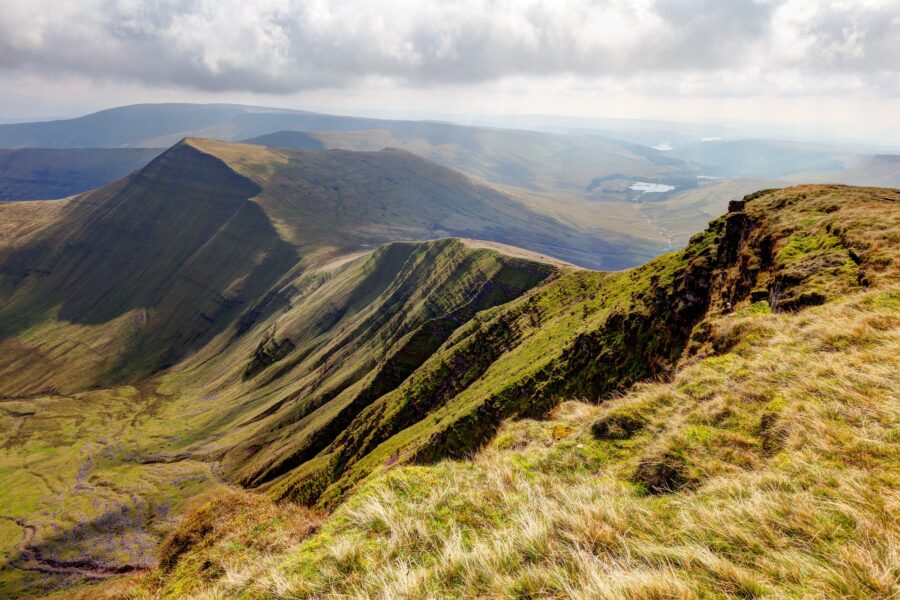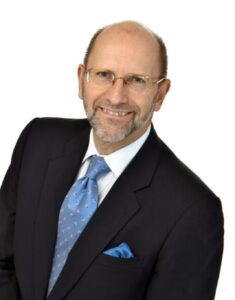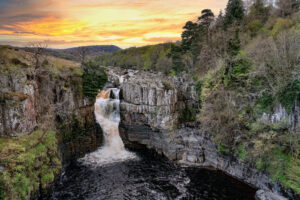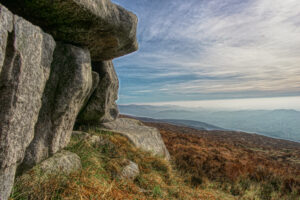7th October 2024
Celebrating International Geodiversity Day 2024 – a guest blog by Professor David Drewry

Introduction from Anna Nsubuga, UK Ambassador to UNESCO
Sunday 6 October is International Geodiversity Day. International Geodiversity Day is a worldwide celebration, bringing people together on each year, to promote the many aspects of geodiversity. Geodiversity is all around you. It is all the parts of nature that aren’t alive; including everything from minerals and fossils, to soils and spectacular landscapes.
It is my pleasure as UK Ambassador to UNESCO to have invited Professor David Drewry, member of UK National Commission for UNESCO’s Board of Directors, to share his reflections on this special day, which you can read below.
Please also enjoy a selection of photos of the UK’s geoparks throughout this blog, with thanks to the UK National Commission for UNESCO.
International Geodiversity Day – by Professor David Drewry

I am standing on the “white” chalk headland above Dover during a weekend vacation. It is an iconic location in south-east England forming a landscape of outstanding natural beauty. Inland, The Weald is an area of ancient settlement where ores were mined by early settlers for iron production dating back over 2,750 years.
Further to the west, the island of Portland has yielded fine-grained limestone, an outstanding construction material, used for many famous buildings in London such as St. Paul’s Cathedral. Further West again is the UNESCO World Heritage Site of the Jurassic Coast, redolent of the remains of dinosaurs, a long-forgotten world, and an attraction for visitors of all ages to learn about our past.
These spots and activities attest to the contributions that geology and physical geography make to our sense of place and wellbeing, to society, heritage and our economy. Stories just like this can be related in every country in the world and in so doing celebrate the geodiversity of our home, Planet Earth.
Over recent years there has been a growing realisation that so much of our lives depends in some way on geology. The cup we drink out of has been shaped from clay, the bricks and mortar that are used to construct billions of homes and commercial premises are made of earth materials, lime, clay, sand, and water – another earth material! Steel, aluminium and titanium that build vehicles, railways, aircraft, bridges and all manner of consumer goods have their origins in ores extracted from the ground.

As I write this blog on my iPhone it is astonishing to recall that over 75% of the elements (non-radioactive) that are in the Periodic Table and that go into making this device are extracted from the Earth’s crust. Today, in our electronic age, and as we embrace the switch from hydrocarbons to renewable forms of energy generation, we rely critically upon these materials that are dug out or mined. Batteries and electronic components require rare earths and metals such as lithium, palladium, germanium, even gold and silver, and many more.
This demand is, however, of increasing concern. Extraction in some counties is explorative, frequently illegal, conditions for workers are poor and risky and considerable damage is inflicted on the landscape often destroying vast areas of natural vegetation or agricultural land. In a similar manner to our biosphere we need to respect and protect our physical earth and how we use it; it is after all a finite resource for all humankind as well as the essential underpinning for biological life through erosion, weathering and soil production for agriculture.
This goal can be achieved, as it is in the UK, by pursuing landscape conservation, seeking designation as UNESCO World Heritage Sites (eg. Giant’s Causeway in Northern Ireland) and UNESCO Geoparks (of which the UK now has 9) as well as sites of special scientific interest (SSSIs). Incidentally, UK scientists and environmentalists, at the forefront of geoheritage and geoconservation, played a leading role in promoting and achieving the UNESCO Geodiversity Day.

But let me return to the beauty of our world’s landscapes which inspire, uplift the soul and challenge our imaginations. The range and sights are truly awe-inspiring – vast mountain ranges like the Himalaya, intricate coasts, islands chains, chilly glaciers and bleak deserts – all have stimulated artists, writers, poets, and composers capturing the essence of nature and bringing solace and appreciation to millions who have admired and enjoyed their works.
Every year, Geodiversity Day celebrates the myriad dimensions offered by our wonderful world. Happy International Geodiversity Day to all!
You can find out more about International Geodiversity Day.
Professor David Drewry is a world leading expert on the environment and study of the polar region, his experience includes Director of both the British Antarctic Survey and the Scott Polar Research Institute at Cambridge University. Professor Drewry is a member of the UK National Commission for UNESCO’s Board of Directors, specialising in Natural Sciences and European Research Policy.
Thank you for this celebratory blog which expresses the values of geodiversity so well. I am a PhD researcher working on a project titled ‘Written In Stone’ at the Open University. We are seeking to develop a framework for evaluating the social, economic and natural values of geodiversity and working with the Natural Trust to do so. I join you in the IGD celebrations and in working to provide a louder ‘voice’ for this aspect of nature.